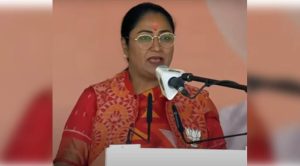Akshay trolled for not voting. But, only Indian citizens can vote

File Photo
New Delhi: Actor Akshay Kumar who recently grabbed headlines for his “non-political” interview with Prime Minister Narendra Modi, was widely trolled for not casting his vote in Mumbai on April 29 when the city went for Lok Sabha elections in the fourth of seven-phase Lok Sabha election.
Kumar could not have voted in the elections as he holds a Canadian passport. India does not allow dual citizenship.
Indians who go and stay abroad, have been broadly categorised in three broad categories- NRIs, PIOs and OCIs. NRIs (Non-Resident Indians) are essentially Indians who live in another country. PIOs and OCIs want to stay connected with India more closely.
Prime Minister Narendra Modi in a speech at Madison Square Garden, New York in September 2014 announced the merger of PIO and OCI schemes. The government notified in 2015 that all the existing Persons of Indian Origin (PIO) card holders registered as such under new PIO Card scheme 2002, shall be deemed to be Overseas Citizens of India Cardholder.
All PIO card holders with valid PIO cards as on January 9, 2015 were advised to apply for conversion of their PIO card to OCI card.
The government later extended the date for submission of the application for registration as OCI cardholder by the erstwhile PIO cardholders till June 30, 2017.
There is a clear and unambiguous definition of overseas voters who can participate in the election.
A citizen of India, who is absent from the country owing to employment, education etc, and has not acquired citizenship of any other country is Overseas Voter and is eligible to be registered as a voter in the address mentioned in their Indian passport.
Such a voter can use the interactive map to find the polling station and contact details of election officers from your area. He or she is required to fill an enrolment form and upload it online at www.nvsp.in and upload the requisite proofs.
The form can also be downloaded from the Election Commission website and are also available free of cost in Indian Missions. The form can be submitted in person or by post and the verification process then kicks in.
Name of overseas elector is included in a separate section fo” “Overseas Electo”s” which is the last section of the roll of each polling station area.
An overseas elector is not issued an electronic photo-identity card and he or she is allowed to vote in person at the polling station on production of original passport.
No person can be enrolled on more than one electoral roll.
Bureau of Immigration under Home Ministry had said that it would accept PIO card as valid document till March 31, 2019 along with valid foreign passport.
Published on: May 3, 2019 at 22:47 IST
IANS




